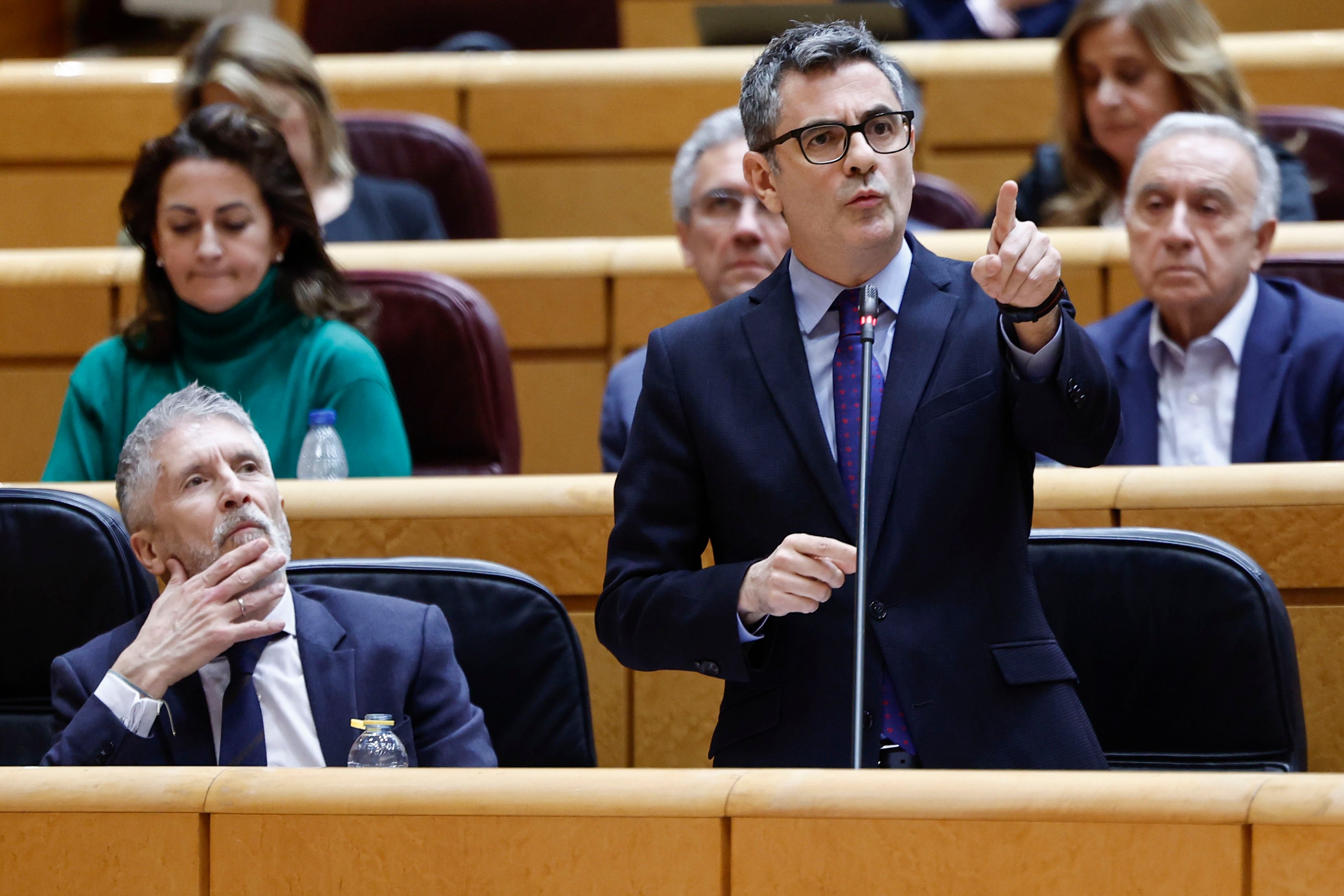The Government responds to the CGPJ report: it proposes that opponents of judges to exercise free | Spain

The Government studies that judges who exercise as opponent preparators to the judicial career are « free » work. Thus the government has responded to Report of the General Council of the Judiciary (CGPJ) on the reform of the judicial career which approved on Wednesday the plenary of that organ and that questioned the transparency measures for the opposition trainers provided for the draft law. According to the text of the Council, the magistrates who spend time preparing future judges do it more as a « moral/deontological obligation » that is exercised with « generous ends » more than « mercantilists. »
The proposal launched this Thursday by the Ministry of the Presidency, Justice and Relations with the Courts is the first shock, underground but evident, between the Government and the renewed governing body of the judges chaired by the progressive Isabel Perelló. The origin of the conflict is the mandatory report of the CGPJ on the draft law Organic for the extension and strengthening of the judicial and fiscal careers, approved by the Council of Ministers last January and that it provides Changes in the current opposition system To facilitate access to students of all socioeconomic levels, it modifies the current exam model and contemplates increasing the number of judges speeding up access by the so -called Fourth Shift (reserved for renowned jurists) and ending with the situation of interinity of hundreds of substitute judges.
The council report applauds some of the measures, but criticizes other key aspects and warns that the draft law incorporates “certain draft innovations” that “can generate doubts about the lack of suitability of any of the projected measures to achieve the objectives pursued by the legislator both for reasons of legislative technique, and for the objectives that the reform wants to achieve”. This opinion is the result of an agreement between the progressive and conservative groups from a first very critical document prepared by the CGPJ technical cabinet.
Among the novelties of the legal reform questioned are the expected measures to end the Black collection by trainers of oppositions to the judicial and fiscal career, a very widespread practice. For them, the draft provides that it be mandatory for all the judges who exercise as opponent trainers ask for compatibility to prepare the candidates for the race – currently only have to ask for those who exceed a certain number of hours. To do this, those interested will have to register in a public registry of trainers.
The CGPJ report reproaches this measure and argues that the preparation for access to the judicial career is an “inherent and consubstantial work to the exercise of the function that the judge or magistrate plays and that it constitutes one more manifestation of its professional competence”. “From this point of view, such activity must be understood as a moral/deontological obligation in that a way of transferring knowledge and extensive professional experience in the exercise of jurisdiction to the new promotions that will integrate the judicial career, without forgetting that, in many of the occasions, such preparation obeys, rather than for mercantilists, for generous purposes of collaboration and exchange of legal knowledge regard Nearby ”, collects the text of the CGPJ.
Sources from the Ministry directed by Félix Bolaños have announced that the government is evaluating “different improvements in the text from the recommendations of the Council”. « For example, in the field of preparation for opponents by active judges, that the report defines as an 'obligation' that judges assume in a 'generous' way the Executive is analyzing a possible reform that guarantees the free and altruistic character of this preparation by those who now exercise this activity moved by said deontological obligation, » these sources add.
The Executive claims to be “satisfied” with the approved report of the CGPJ because it considers that it supports “the core of the draft” of law: the legal armor of the scholarships to access the main bodies of the administration of justice, the clarification of the professional career of judges and magistrates, the “guarantee” regulation of the principles of selection or the telematic vote for the transparent election of the courts of the courts.
Sources from the Ministry of Justice indicate that the majority of objections made by the report are “technical recommendations to strengthen some aspects of the text” that the Government will analyze “detailedly” before sending the draft to the Congress of Deputies to raise possible changes, such as opposition preparators. « The issuance of this report states the relevance of the changes sought by the Government and allows to continue with a key norm for the greater transformation and modernization of justice in decades undertaken by the Executive, » says the government.







